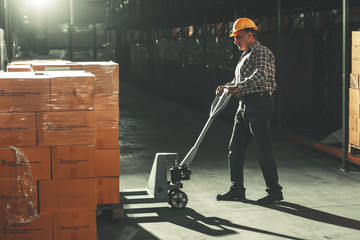According to statistics, every fourth employee at least sometimes have to do night shifts. Regardless of whether you are an evening or a morning person, whether you like daylight hours or fly with the owl, the work at night does not remain unnoticed. Breaking natural biorhythms and adjusting to different shifts, a person harms one’s health and, nevertheless, many of us have to work this way, some professions assume mandatory night shifts. This article discusses the health tips for night shift workers.
Health Dangers Associated With Night Shift Work
The human body is programmed to sleep at night. During sleep, the body produces melatonin, which is a hormone that regulates the endocrine and cardiovascular systems, helps maintaining strong immunity, improves adaptation to stress. The peak of melatonin production is from midnight to 2 AM, and at this time a person should sleep in a dark room. Therefore, during work on the night shift, melatonin is produced in insufficient quantities, and this may entail serious health problems.
For example, for those who often work at night, the heart works worse. Some experts attribute this to the fact that at night, the body produces fewer substances that help maintain the correct heart rate, while others believe that, working at night, employees often abuse coffee and cigarettes. However, nevertheless, heart attacks and increased pressure in such workers occur more frequently.
Being overweight can also be a consequence of night shifts. This is because night shifts disrupt the production of ghrelin and leptin, which are the hormones responsible for feeling full. That is why the night shift workers often overeat and do not always consume healthy food and an overweight, unhealthy diet – the causes of diabetes. At the same time, note: for those who often work at night, the production of another important hormone, insulin, is impaired, so the risk of getting diabetes after ten years of regular night shifts increases by 40%.
Employees who have to spend the night at work often have an increased level of stress and aggression. No wonder because they continuously experience lack of sleep.
Occupational injuries occur more often when working at night.
Health Tips for Night Shift Workers

Health Tips for Night Shift Workers
The first and most important thing to do is to set up a sleep mode. For a good rest, you need about 8 hours, but you should not sleep out all the hours immediately after the shift; otherwise, it will not be comfortable to sleep next night. After returning from work, lie down for 5-6 hours, and leave the rest for the evening. On the way from work, try not to sleep in transport, and at home, acquire blackout curtains to create darkness in the bedroom.
Watch out for food. A perfect snack before and during the night shift is milk, chicken breast, lean fish. To maintain vigor, the body requires protein. However, carbohydrates – potatoes, pasta, pastries – on the contrary, put to sleep.
There is nothing wrong with cheering yourself up with a cup of coffee while you work at night. However, try to drink coffee no more than once per hour and discard this stimulant at the end of the shift.
Do sports. Any physical activity enhances the adaptive capacity of the organism.
Ensure that your workplace is brightly lit. If necessary, get a desk lamp. However, remember, only fluorescent tubes with a bluish tinge are invigorated. Yellow light is not conducive to a surge of energy.
Try all the essential things and tasks that require concentration and attention to perform at the beginning of the shift. In the morning, it will be more difficult.
Put a positive spin on this.
The night shift work has its advantages.
- If the usual day shift lasts 8 hours, then at night, the working day is reduced by 1 hour. Night shift is considered to work from 10 PM to 6 AM.
- Work at night supposes an additional payment. Its size is agreed with the authorities, but the hourly rate of remuneration cannot be less than 20% of your regular tariff rate (amount per hour).
- The night shift workers, as a rule, have more free time.
Who should not work at night
Pregnant women and underage, citizens are not allowed to work at night. However, who can be put back in the field only with their written consent and provided that it is not prohibited for health reasons:
- Women with children under the age of three;
- Disabled and workers with disabled children;
- Workers who care for sick family members;
- Mothers and single fathers were raising children under the age of five.
At the same time, such specialists should be introduced under signature with their right to refuse to work at night.
How is it better to get enough sleep after the night shift, go to bed right away or a little later?
Focus on your feelings. However, there is nothing wrong with that if you fall asleep as soon as you get home. The main thing is trying not to nap in the transport when you go back from work. Already in the apartment, you need to create all the necessary conditions for yourself; silence and complete blackout so that daylight does not penetrate the room at all. If you have difficulty falling asleep during the day, you can take melatonin drugs. They are often used for shift schedules, flights to several time zones, are sold without a prescription, and are not addictive. Most importantly, they do not have any severe contraindications. Do not want to use drugs – drink herbal teas, such as chamomile or sage, take a warm shower.
Conclusion
There is a scientifically sound hypothesis contributing to comfortable night work. If you want to get enough sleep before work, make sure that the total sleep time is a multiple of 70 minutes. Every 70 minutes, the next sleep phase ends. If a person is woken up, say, at 20 or 50 minutes, s/he will feel frustrated and irritated. Check out this theory when you set the wake-up time on the alarm clock next time.
About the author
Melisa Marzett is a content writer from Phoenix, Arizona currently living and working in London for http://smartessayrewriter.com who specializes in ghost blogging, digital marketing, SEO with more than five years of experience in the area of writing, copywriting and editing. She likes to cook for entertainment. Also, during her off-hours, she enjoys swimming and scuba diving.








